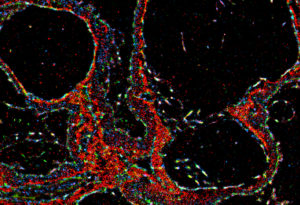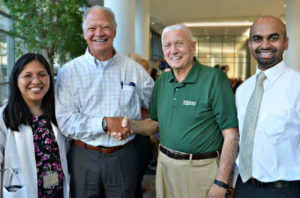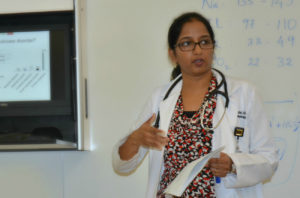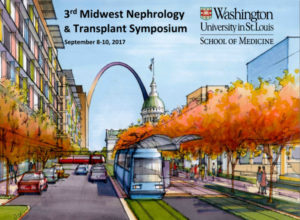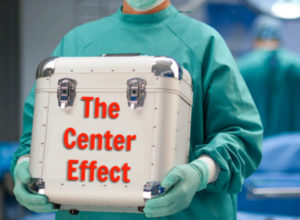The Division of Nephrology’s 2017 Translational Innovation Grant has been awarded to Assistant Professor of Medicine Tarek Alhamad, MD, and Instructor of Medicine Hani Suleiman, MD, PhD, in the sum of $50,000. The project is titled Novel Diagnostic Imaging Techniques for Transplant Glomerulopathy. The Translational Innovation Grant program, now in its third year, brings together a clinician and basic scientist from […]
Suleiman and Alhamad Awarded WU Nephrology 2017 Translational Innovation Grant
